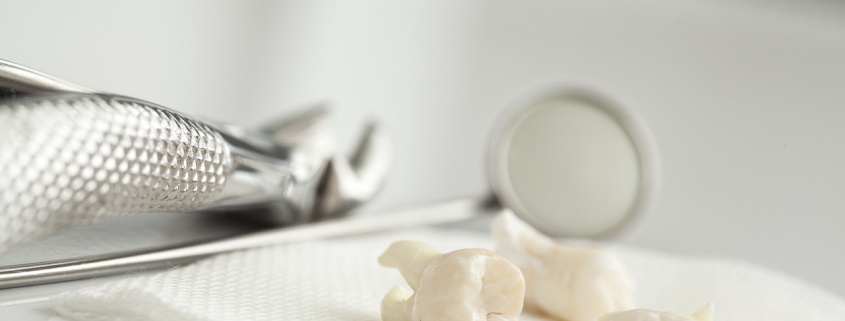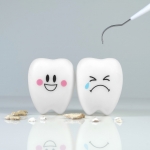The removal of wisdom teeth is a highly debatable topic in the dentistry world with everyone having their own opinion on if they actually need to be extracted. Societal norm says yes, once your wisdom teeth come in then you need to immediately get in touch with a dental surgeon and get them removed ASAP. But is it really necessary? Let’s find out.
What is a Wisdom Tooth?
Before we begin to cover whether they should be kept in your mouth or not, you need to know what a wisdom tooth actually is. Your wisdom teeth are your third and final set of molars that start to make an appearance after the majority of your adult teeth have come in, but some people don’t develop them at all. For those that do, the actual timeframe varies, but the most common age when wisdom teeth begin to be noticeable is around the late teen to early adult age. They are usually found on x-rays during your bi-annual cleaning. Individuals will begin to feel pain and discomfort at the very back of their gums, similar to an intense toothache. This is the wisdom tooth attempting to break through the surface of the gum, but the pain will be more severe if the wisdom tooth becomes impacted or is growing in crooked.
Why do we have Wisdom Teeth?
Anthropologists hypothesize that wisdom teeth aided our ancestors when they needed to break down much more tough and raw food, but nowadays they don’t seem to serve much of a purpose with the invention of stoves, ovens, and various other cooking machinery. Modern food is much easier to chew and process and thus, wisdom teeth have outgrown their purpose, much like our appendixes.
Can I Keep my Wisdom Teeth Intact?
Honestly, at the end of the day, it is your call. You have personal autonomy over your body which means that you can make the decision that is best for you. If your wisdom teeth are growing in just fine with minimal pain and don’t cause problems for the surrounding teeth, then there should be no reason why you wouldn’t be allowed to keep them. It just means that you have to take care of them as you do with the rest of your teeth, keeping them free of bacteria and providing daily cleaning. However, wisdom teeth that are unable to break through the gumline and become impacted are a major health risk and definitely should be removed. Wisdom teeth that grow in crooked and cause crowding, risking the health of the surrounding teeth, should also be considered for immediate extraction.
What is the Extraction Process?
Extraction takes very little of your time and is a relatively simple procedure, granted that there are no complications with the way that your tooth is growing. A local anesthetic is applied, but for more squeamish patients, a temporary sedative can also be an option to keep them more comfortable. Your dental surgeon will go over all the details and make the procedure as comfortable and pain-free as possible.
What About the Healing Process?
Time will vary from patient to patient, but full healing could take anywhere from a couple weeks to a month, depending on the circumstances surrounding the extraction. During this time, it is best to eat foods that are not to difficult to chew and avoid using straws as that causes suction and could tear the stitches or increase bleeding. Once again, your dental surgeon will provide you with complete post-op care instructions to ensure that your healing goes smoothly. If non-dissolvable stitches were used, they will be removed a week later when your dentist checks on the status of your teeth.
Conclusion
Work with your dentist to find out the best option for you. Your comfort and oral health should always be the priority during this time and it’s important to know all the facts. If you have any questions about your oral health, the state of your wisdom teeth, or other dental related questions, navigate to the ‘Contact’ section of our website and schedule a complimentary consultation today.



